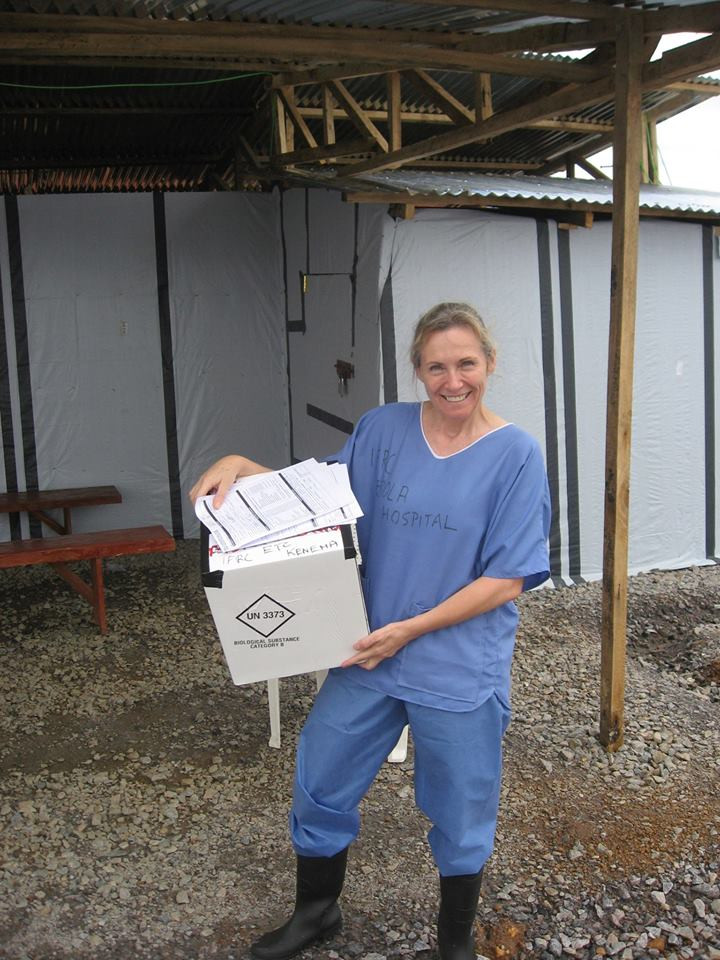Ebola Scare: Australian Nurse Sue Ellen Kovack Tested for Virus upon Return from Sierra Leone

An Australian nurse who worked with Ebola patients in Sierra Leone is being tested for the deadly virus after she developed a fever upon returning to her homeland.
Sue Ellen Kovack, 57, has been admitted to hospital in Cairns, Queensland, and is being monitored by infectious diseases specialists while in isolation.
Queensland chief health officer Jeanette Young said blood samples were taken and sent to Brisbane for testing, with results due in the next hours.
Young said: "We don't know whether she has that [Ebola] but she has been exposed to people with the disease while working in Sierra Leone."
Kovack, a Red Cross volunteer, travelled back to Australia from Sierra Leone earlier this week.
Following medical procedures she remained in home quarantine monitoring her health, until this morning when she was taken to Cairns hospital as a precautionary measure, after developing a low grade fever of 37.6 degrees Celsius.
"She's done everything appropriately," Young said. "She has not been out in the community in Cairns".
Young also said passengers on the flight she took to return to Australia had nothing to worry about as she developed potential symptoms of the disease only afterwards.
"The community has absolutely nothing to worry about because the Ebola virus is very difficult to transmit — you need to be exposed to secretions such as vomit, diarrhoea or blood and she doesn't have any symptoms," she added.
"There is absolutely no concern for any passenger on any plane she's been on because she did not have any symptoms at all when she was on those flights."
Meanwhile, the UK Government is under increasing pressure to begin screening for Ebola at international airports, following the lead of the White House.
Health Secretary Jeremy Hunt has said it is "entirely possible" that the deadly virus, responsible for more than 3,500 deaths so far, could come to Britain within months.
Yesterday the US put in place precautionary measures to avoid an outbreak after the first man diagnosed with the lethal disease in the country died in Texas.
Customs and Border Protection agents at airports and other ports of entry are to observe incoming travellers for potential signs of infection.
© Copyright IBTimes 2025. All rights reserved.





















